Antique Imperial Russian Silver Inlay Kovsh Vessel Bowl Ladle Spoon TALASHKINO
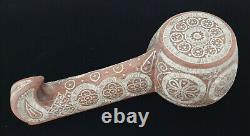
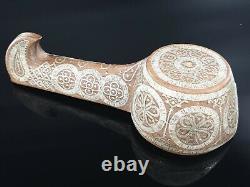
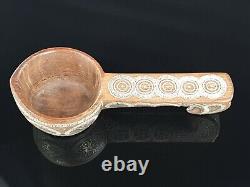
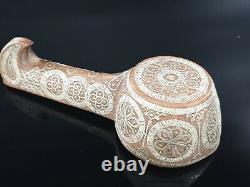
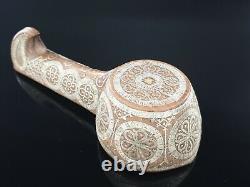
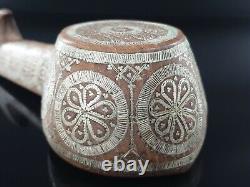
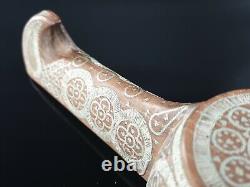
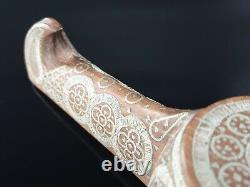
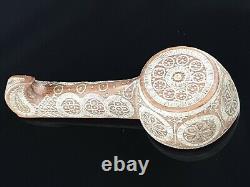
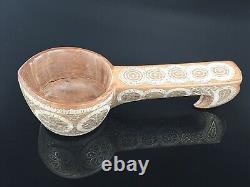
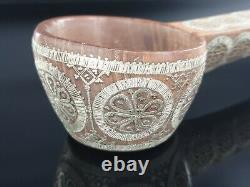
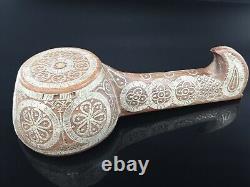

For your consideration is an exceedingly rare and important antique Imperial Russian hand-carved wooden Kovsh / ladle / drinking vessel, with intricate and highly specialized pan slavic designs created exclusively with genuine silver inlay. Bowl interior diameter at lip 2 3/4", bowl side/side (exterior) 3 1/8", bowl height (front) 2 5/16", length 7 5/8". Weight is 8.2 oz (231.6 grams). Condition: Antique, excellent overall, interior bowl with shrinkage cracks, exterior base of bowl missing 3 small sections of silver on one side as pictured.
A kovsh is a traditional Russian drinking vessel, usually small and boat-shaped with a single handle. Early versions were made of wood, but by the 16th century, gold and silver were also used. Hese ornamental ladles are kovshi (singular: kovsh), a type of Russian drinking vessel in the shape of a duck.
Traditionally, various vessels were intended for different beverages. Kovshi, which come in a range of sizes, were intended for drinking kvass or beer. They were also used for drinking mead, a honey based drink that varied in flavor from using different fruits and berries. Silver kovshi were used for white mead, while golden kovshi were used for red mead. They were originally made of wood and some early kovshi were made of tightly woven cloth.
In the 16th century, they began to be made in silver and increasingly assumed a ceremonial status. The kovshi in our collection are nineteenth and early twentieth century pieces of the Old Russian style, seen in the multicolored enameling inspired by sixteenth and seventeenth-century patterns. A yearning for a Russian art unmarred by Western influence contributed to what became the Russian Revival in the 1870s and 1880s.Interest in exploring early Russian artistic traditions provided craftsmen with a rich body of sources for creating beautiful, distinctly Russian works of art. Cloisonn enameling is but one example; another is trompe loeil, discussed in this blog post. While many such pieces were ornamental, a few could function as punch bowls or salts depending on their size.

